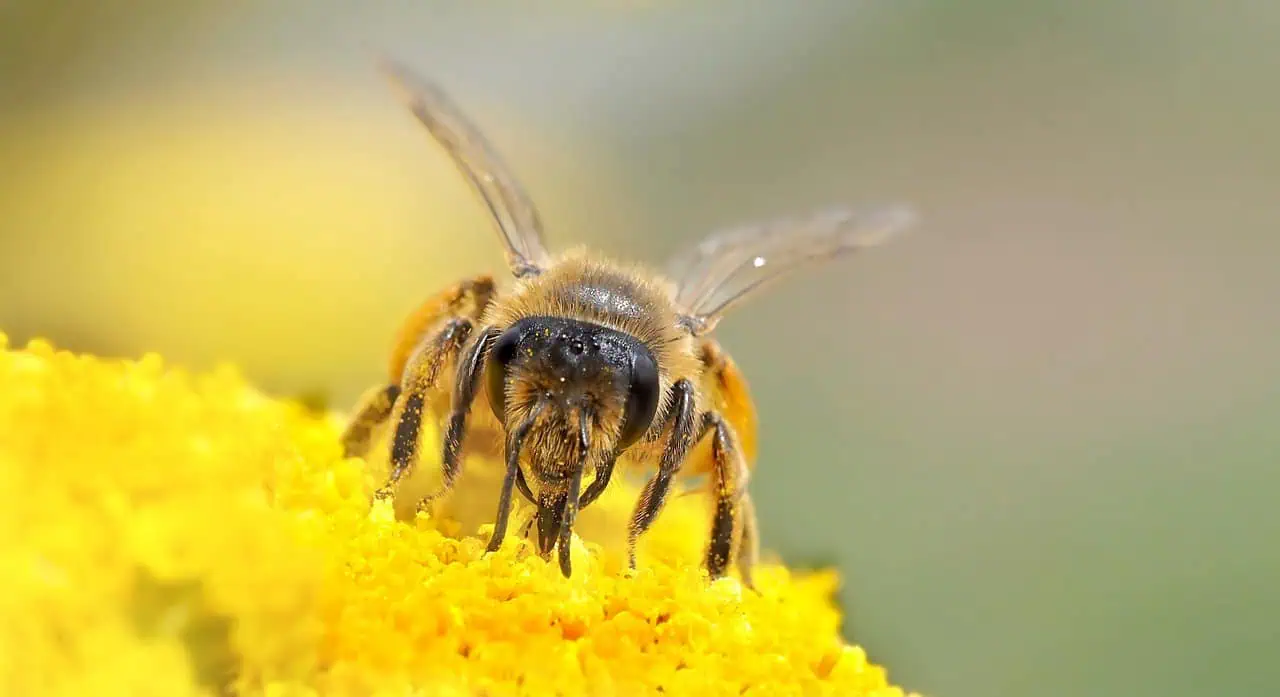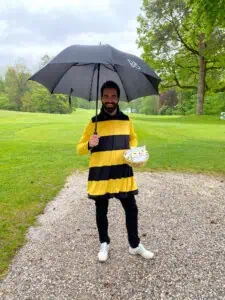German Bee Week: More than 400,000 golfers invited to take part
German Bee Week is growing: in 2025, more than 400,000 German golfers in more than 500 German golf clubs will have the opportunity to take part in a tournament in support of projects for bees or environmental and nature conservation on their golf courses. German Bee Week thus combines a passion for golf with a commitment to protecting bees and promoting biodiversity. From May 19 to 25, 2025, around World Bee Day on May 20, golf clubs throughout Germany are invited to draw attention to the importance of bees through special tournaments and campaigns and to support local nature conservation projects.
Background to the German Bee Week
It all began in 2020 with the Bavarian Golf Association’s Bee Week, which became the South German Bee Week in 2021 thanks to the cooperation with the Bade-Württemberg Golf Association. A regional initiative has now become a Germany-wide project, with the associations from Hamburg, Hesse, North Rhine-Westphalia and Schleswig-Holstein also taking part. Bee Week is therefore proof of the positive effect that even small initiatives can have if there is a good idea behind them.
During German Bee Week, golf clubs can now organize tournaments or other events whose proceeds go entirely to local or club-owned bee and biodiversity projects. The implementation remains flexible so that each club can develop its own creative formats. The game can therefore be played as part of a ladies’ afternoon or a normal tournament.
Participation and support
Golf clubs wishing to participate can register via the official website. Participating clubs will receive support in the form of information material and will be listed on the platform to increase the visibility of their commitment. Golfers can actively contribute to the protection of bees by participating in the special tournaments and at the same time raise their awareness of ecological issues.
For Dr. Gunther Hardt, Head of the Biodiversity Working Group of the German Golf Association, this expansion of the project is a huge success. “We are drawing the big picture here.” Thanks to the large number of golfers and clubs, there is significantly more public awareness. “A single golf club doesn’t make it into the press. But all of them together do.”
Current situation of honey bees and wild bees in Germany
The importance of such initiatives becomes clear when you consider the current state of bee populations in Germany. While honey bees have relatively stable populations thanks to the care of beekeepers, wild bees are facing considerable challenges. Of the almost 600 wild bee species in Germany, over 50 percent are considered endangered or already extinct.
Several factors contribute to the decline of wild bees:
Habitat loss: The intensification of agriculture, land consolidation and the expansion of urban areas lead to the destruction of nesting sites and food sources.
Pesticide use: The use of insecticides, especially neonicotinoids, impairs the health and reproductive capacity of wild bees.
Climate change: Changing climatic conditions influence the flowering times of plants and thus the availability of food sources for wild bees.
Strong specialization: Some wild bees are extremely specialized on individual plant species. The greater the reduction in plant diversity, the smaller the food supply for wild bees.
Importance of golf courses for bee protection
Golf courses offer enormous potential for the protection and promotion of bee populations due to their extensive green areas. Through targeted measures such as the creation of flowering meadows, the provision of nesting sites and the avoidance of chemical pesticides, golf courses can become valuable habitats for bees and other pollinators. German Bee Week makes use of this potential by encouraging golf clubs to actively contribute to the preservation of biodiversity.







